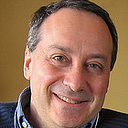Member-only story
Did the Internet Break Democracy?
No, and Jonathan Haidt’s big new Atlantic essay about social media’s damaging effects couldn’t be more wrong about what ails us
Jonathan Haidt, the New York University social psychologist and author of the bestselling book The Righteous Mind: Why Good People are Divided by Politics and Religion, has been on a tear for a while about the negative effects of online social media. Three years ago in The Atlantic, he and co-author Tobias Rose-Stockwell wrote an essay arguing that the public discourse was getting more coarse and less civil because of how social media “turns so much communication into a public performance.” Being outrageous, which might make a person tiresome in a private setting, gets rewarded in the online arena. Instead of dialogue, we get grandstanding. And so social media platforms like Facebook, Twitter and YouTube, attuned to foster continuous engagement, foment more division as they go about attracting and holding their users’ attention. Haidt and Rose-Stockwell had a point, though it was hardly an original one. But they also seemed incline to exaggerate the effect that social media was having on our society, writing, “This, we believe, is why many Americans — and citizens of many other countries, too — experience democracy as a place where everything is going haywire.”

